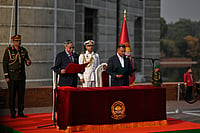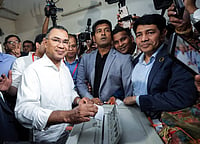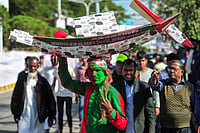Indira Gandhi inherited her father’s position of political authority, but had an approach quite opposite to her father’s—in contrast to Jawaharlal Nehru’s largely democratic approach, she was authoritative and dictatorial. She was the first “iron lady” of modern world politics. She wielded her authority so strongly that she went on to be described as the “only male” in the ministry full of “old women”, the last description referring to Congress veterans. She took the powerful head-on, from Congress heavyweights to industrialists and landlords, to push through the reforms she intended— nationalisation and land ceiling being among them. Yet, the motherly weakness for her younger son, Sanjay, led her to a lot of trouble and the country to one of its darkest hours. There is a list of measures that her government took that had a lasting impact on India’s economy and social justice—from legalising abortion and empowerment of the landless labourers to bank nationalisation, but many of them came at a time when all voices of dissent had been brutally crushed and the country’s democratic structure subverted. It has been argued that she used the “garibi hathao” slogan mostly as a tool to gain consent for her undemocratic moves. Yet such was her unmatched charisma that she returned to power with a comfortable majority only three years after the anti-Indira, anti-Emergency wave that routed her party from most parts of India.
(This appeared in the print as 'The First ‘Iron Lady’)
Indira Gandhi: The First ‘Iron Lady’ Of Modern Politics
Indira Gandhi wielded her authority so strongly that she went on to be described as the 'only male' in the ministry full of 'old women', the last description referring to Congress veterans.

indira gandhi
indira gandhi
Published At:
MOST POPULAR
WATCH
MORE FROM THE AUTHOR
PHOTOS
×





















